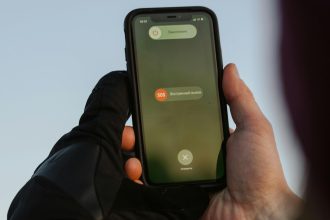How Engaging with Users Before Building Turned My Failures into $9,000 in Revenue
You’ve likely heard this advice before, but it’s worth repeating.
My past year was filled with projects—most of which flopped. Yet, one of my recent endeavors attracted over 5,000 users.
For the first seven months, I struggled to generate any interest in my projects, no matter how hard I tried to market them. I followed countless marketing strategies, but nothing seemed to work.
That’s when I realized I needed a different approach.
I decided to take the classic advice and start talking to potential users before diving into development.
Specifically, I reached out to my target audience. Here’s what I did:
- Posted on the relevant subreddit to connect with my audience
- Sought their feedback on my idea and aimed to better understand their needs and challenges through a survey
- Offered reciprocal feedback as an incentive for their responses
The feedback I received was encouraging, boosting my confidence to move forward. But what truly surprised me was the response once I launched.
Two weeks after releasing my MVP, I gained 100 users. While that might not seem monumental to some, it felt incredible after months of struggle with user acquisition.
I wanted to capitalize on this momentum, so I quickly incorporated the feedback I received and prepared to launch on Product Hunt.
That launch was even more exciting! I hit #4 with over 500 upvotes, and by the end of launch week, I had surpassed 1,000 users.
Most thrilling of all? I secured my first paying customers after seven months of effort without earning a dime.
This was a game-changer for me. I finally had a product people cared about—and they were willing to pay for it.
I credit much of this success to engaging with users beforehand. It allowed me to:
- Validate the idea’s viability
- Tailor the product to meet real user needs
- Gain a deeper understanding of my target audience
- Avoid wasting months on a product that no one wanted
So, if you take away one lesson from my months of setbacks, let it be this: talk to people before building your product.
I hope this insight helps others avoid the pitfalls of spending valuable time on projects that won’t resonate with their audience.










3 Comments
It’s great to hear about your journey turning failures into success! Your experience emphasizes a crucial lesson in the entrepreneurial process: the value of listening to your target audience before diving into development. It’s impressive how quickly you were able to pivot from your initial struggles to gaining traction.
By creating a Reddit post and directly engaging with potential users, you took the proactive step of validating your idea early on, which is often overlooked by many. The feedback loop you established not only gave you confidence but also allowed you to tailor your product more effectively, ultimately leading to your success on Product Hunt and beyond.
Your story is a powerful reminder that market research and audience interaction can significantly impact the viability of a product. It’s also encouraging to see how quickly things can turn around when you incorporate user feedback into your development process.
Thanks for sharing these insights! They’re sure to inspire and help others avoid the common pitfalls of building without a clear understanding of their audience’s needs. Keep up the great work!
Thank you for sharing your journey and the valuable lessons you’ve learned along the way! Your experience highlights a crucial aspect of product development that often gets overshadowed by the excitement of creating a new project. Engaging with potential users not only informs the development process but also builds a sense of community and investment in the product from the very beginning.
I particularly resonate with your approach to seek feedback through platforms like Reddit. Fostering genuine conversations and building relationships with your audience can lead to insights that traditional market research might overlook. Your process is a great reminder of the importance of agile methodologies, where user feedback is iterative and continuous, shaping the evolution of the product in real-time.
Another point worth considering is the idea of ‘user personas’ derived from this feedback. By developing detailed personas based on the insights you gathered, you can further refine your marketing strategies, ensuring that your messaging speaks directly to your target audience’s unique challenges and aspirations.
Additionally, I believe that offering reciprocal feedback not only incentivizes participation but also cultivates a network of potential advocates for your product. It fosters a spirit of collaboration, encouraging users to feel more connected and invested in your success.
Thanks again for your insights! Your success story is an inspiration for many looking to navigate the often challenging world of entrepreneurship. I look forward to seeing how your approach evolves in future projects!
Thank you for sharing such a compelling and relatable experience. Your story truly underscores the power of user engagement and validation early in the product development process. It’s often tempting to dive into building, but as you’ve shown, taking the time to understand your target audience’s needs can dramatically improve your chances of success.
In addition to the tactics you mentioned, I’d recommend also exploring different feedback channels such as user interviews, beta testing groups, or even creating a simple landing page to gauge interest before committing to full development. Building an ongoing dialogue with your audience can not only refine your product but also foster a sense of community and loyalty from the outset.
Your journey is a valuable reminder that empathy and communication are key drivers behind successful products. Thanks again for inspiring others to prioritize user input—it truly makes all the difference.